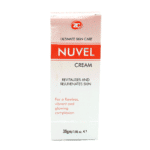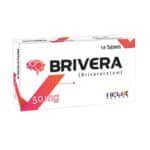delivery within 72 Hours
Omnipaque 350mg/ml Injection
₨ 12,000
Generic: iohexol
Pack Size: 1
Product Form: Injection
Delivery within: Delivery within 2 to 3 working Days Across Pakistan
Brand: HEALTH CARE PHARMACEUTICALS
Shipping & Delivery
-
Courier delivery
Our courier will deliver to the specified address
2-3 Days
From Rs 250
-
Free 15-Day returns

Unbeatable offers
Black Friday Blowout!
Description
Omnipaque 350mg/ml Injection contains the active ingredient iohexol, which is a water-soluble iodinated contrast medium used for diagnostic imaging procedures. It is administered intravenously or intrathecally to enhance the visibility of blood vessels, tissues, and organs during radiographic examinations such as computed tomography (CT) scans, angiography, and myelography.
Components:
- Iohexol: Iohexol is a non-ionic, tri-iodinated radiopaque contrast agent. It works by increasing the absorption of X-rays, thereby enhancing the contrast between different structures and improving the clarity of images produced during diagnostic imaging procedures.
Uses:
- Diagnostic Imaging: Omnipaque 350mg/ml Injection is indicated for use as a contrast medium to visualize internal structures and organs during radiographic procedures, including CT scans, angiography (vascular imaging), and myelography (spinal cord imaging).
- Intravenous Contrast: It is commonly used for intravenous contrast-enhanced CT scans to enhance the visibility of blood vessels, organs, and lesions within the body.
- Intrathecal Contrast: In some cases, Omnipaque may be administered intrathecally (into the spinal canal) for myelography to visualize abnormalities or diseases affecting the spinal cord and surrounding structures.
Dosage and Administration:
- The dosage of Omnipaque 350mg/ml Injection varies depending on the type of imaging procedure, the patient’s age, weight, and medical condition, as well as the desired level of contrast enhancement.
- The injection is typically administered intravenously for most diagnostic imaging studies, although intrathecal administration may be used for myelography.
- The rate of injection and total volume administered should be determined by the healthcare provider based on individual patient factors and the specific requirements of the imaging procedure.
Precautions:
- Allergy and Hypersensitivity: Patients with a history of allergy or hypersensitivity to iodinated contrast agents, including iohexol, may be at increased risk of adverse reactions and should be closely monitored.
- Renal Impairment: Caution is advised when using Omnipaque in patients with renal impairment or pre-existing kidney disease, as it may increase the risk of contrast-induced nephropathy.
- Thyroid Dysfunction: Iodinated contrast agents can affect thyroid function, particularly in patients with pre-existing thyroid disease. Thyroid function should be assessed before and after contrast administration in at-risk patients.
- Pregnancy and Lactation: The safety of Omnipaque during pregnancy and breastfeeding has not been established. The potential risks and benefits should be carefully considered before administering the contrast agent to pregnant or breastfeeding women.
Side Effects:
- Common side effects of Omnipaque 350mg/ml Injection may include nausea, vomiting, headache, dizziness, flushing, and transient taste disturbances.
- Less common but potentially serious side effects may include allergic reactions, including anaphylaxis, as well as renal impairment, thyroid dysfunction, and neurologic complications.
- Patients should be monitored for adverse reactions during and after contrast administration, and appropriate management should be provided if necessary.
Storage:
- Omnipaque 350mg/ml Injection should be stored at room temperature (20-25°C) away from light and moisture.
- Do not freeze the injection or use it if the solution appears discolored or contains particulate matter.
- Keep out of reach of children and pets.
Customer Reviews
Rated 0 out of 5
0 reviews
Rated 5 out of 5
0
Rated 4 out of 5
0
Rated 3 out of 5
0
Rated 2 out of 5
0
Rated 1 out of 5
0
Be the first to review “Omnipaque 350mg/ml Injection” Cancel reply
You must be logged in to post a review.










Reviews
Clear filtersThere are no reviews yet.